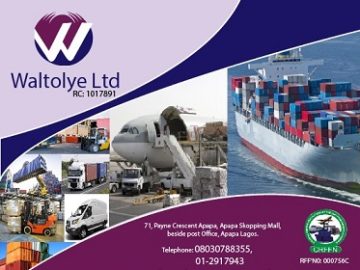Seafarers worldwide are expected to get acquitted with modern shipping techniques to further remain relevant for job placement through up-skilling and re-skilling before the year 2030 over the decarbonization revolution.
As many as 800,000 seafarers serving global shipping will need upskilling by the mid-2030’s to meet the industry’s decarbonisation ambitions according to research commissioned by the Maritime Just Transition Task Force.
The task force launched a 10-point action plan at COP27 based on the new research which it commissioned from DNV Maritime’s consultancy modelling three different scenarios for decarbonisation of shipping through to 2050.
The Maritime Just Transition Task Force was launched at COP26 last year bringing together UN Global Compact, the International Chamber of Shipping (ICS), and International Transport Workers Federation (ITF) with an aim to ensure seafarers at the frontline of decarbonisation were properly looked after and trained in shipping’s energy transition.
The research modelled three scenarios based on the original IMO 2018 targets of a 50% emission reduction by 2050, zero carbon by 2050, and decarbonisation by 2050.
The zero carbon by 2050 scenario, modelled Lloyds Register and University Maritime Advisory Services (UMAS), foresees 450,000 seafarers would require some additional training by 2030, and 800,000 by the mid-2030’s to handle alternative fuels.
Under the decarbonisation by 2050 scenario, modelled by DNV, 750,000 seafarers would require additional training by 2050, and under the IMO 2018 scenario, also modelled by DNV between 310,000 and 750,000 seafarers would require additional training by the 2040’s.
All three scenario’s highlight an urgent need to start putting training infrastructure in place.
Guy Platten, Secretary General, International Chamber of Shipping, said: “There is an urgent need to establish the infrastructure and training required to prepare our seafaring workforce, both in developed and developing countries, to help meet our decarbonisation objectives. This should be done as of today, so they are ready and able to meet the challenges that new green fuels and propulsion technologies will pose and mitigate any potential health and safety risks for ships, communities, the environment and seafarers themselves.”
The Action Plan makes recommendations to industry, governments, seafarer unions and academia in terms of meeting the challenge of training for alternative fuels. Recommendations include: strengthening global training standards, ensuring a health-and-safety-first approach, and establishing advisory national maritime skills councils.
While the urgent need for training is clear which fuels this training needs to be for is not. In its general conclusions the report notes a lack of clarity viability and uptake of alternative fuels, and uncertainty over regulatory developments and finance made it difficult to plan further training for seafarers.
The safety of handling for alternative fuels was stressed by the ITF. “The good news is that seafarers are prepared and willing to be part of this transition. But crew want to know that the fuels they’re handling are indeed safe, and that we as an industry have the training pathways established to upgrade their skills,” Stephen Cotton, General Secretary of the International Transport Workers’ Federation (ITF).
Safety was also stressed by DNV Maritime CEO, Knut Ørbeck-Nilssen, who said: ”Decarbonisation is bringing new opportunities, new technologies but also new risks. Our first priority must be to achieve safe decarbonisation. We must take a collaborative approach to safeguard our people, our ships and our environment.”

















